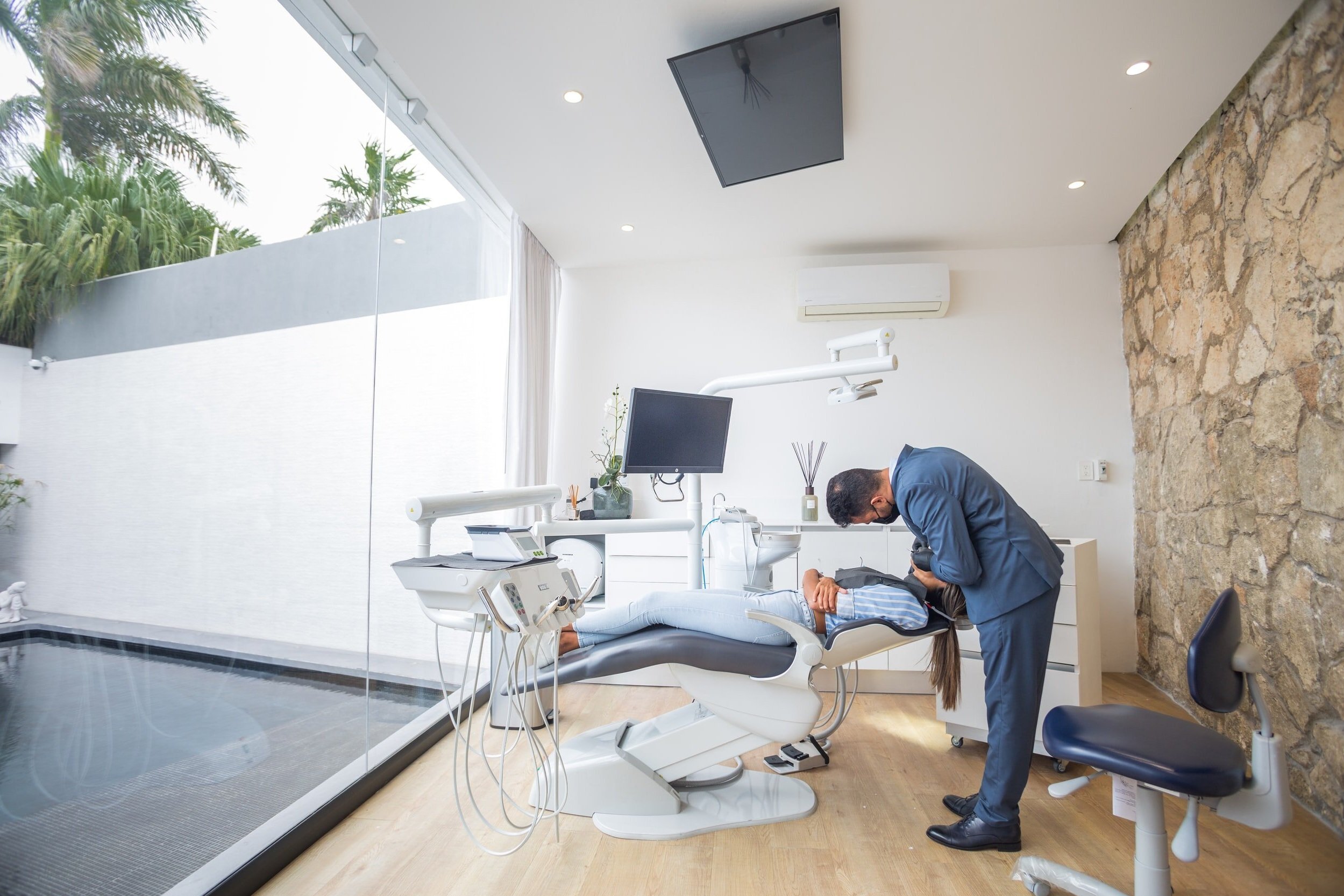
How to care for your dental implants
It’s normal to experience some pain, swelling, and/or bruising after dental implant surgery, peaking 2-3 days later and naturally subsiding after that.
Follow these guidelines to minimize discomfort and avoid possible complications.
Do not eat until the local anesthetic has worn off.
Swelling can be reduced with ice packs on the cheek. Only have cold drinks for the first couple of days. Avoid hot drinks/food and external heat sources. Only after 48 hours is gentle heat beneficial.
Soft food and liquids should be eaten for as long as your dentist recommends. This can vary depending on the patient and surgery done.
Keep physical activity to a minimum immediately following surgery. No strenuous exercise (running/gym) for the first 3 days.
Pain can be managed with simple painkillers (ibuprofen and paracetamol). After the local anesthetic has worn off, take these regularly at the maximum stated dose for the first 2 days after your surgery.
Sleep propped up to ease with pain and swelling.
Do not disturb the area with your tongue or fingers.
Avoid spitting, sucking, using straws or creating any pressure inside your mouth. After a Sinus Lift, avoid blowing your nose or sneezing forcefully, as this might cause the graft to shift.
Keep your mouth as clean as possible. Starting the evening after surgery, begin brushing your teeth as you normally would. Avoid the surgical site for the first few days, but then begin to carefully clean this area as when tenderness permits. Avoid mouthwashes except those given by your dentist.
If you have been given antibiotics to take after your surgery, complete the entire treatment.
Do not smoke for 3 months.
Avoid alcohol for the first 2-3 days after getting your dental implants. Alcohol can hinder the healing process.
If you have a prosthesis placed over the implants, such as dentures, wear it as little as possible for the first week of surgery or until the surgical wound has healed.
Stitches normally dissolve after 2-3 weeks. Minor bleeding after surgery in the mouth is normal. If the bleeding persists, apply pressure by biting firmly down over the area on a dampened gauze swab for 20 minutes while sitting upright. Contact us if bleeding persists for any reason after applying pressure in this way. Contact us if swelling and pain does not improve after 72 hours. If after a week or two, the stitches are still there and it’s bothering you, you can go to a local dentist to have them removed.
If the membrane begins to come out, try gently pulling it out. Do not force it. If you meet resistance, stop. If you’re not comfortable or unable to remove the membrane, then please see a local dentist. At this point, the membrane must come out or risk infection.
